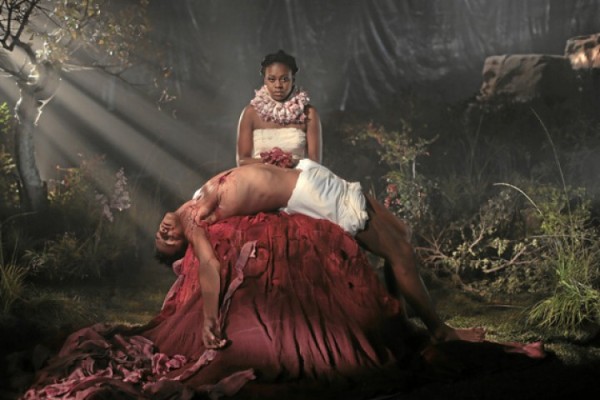It may have been in 1980 that the American novelist, John Updike, wrote a letter to Chinua Achebe. Updike had just finished reading The Arrow of God and had a few things to say about it. He said in the letter:
The final developments of Arrow of God proved unexpected and, as I think about them, beautifully resonant, tragic and theological. That Ezeulu, whom we had seen stand up so invincibly to both Nwaka and Clarke, should be so suddenly vanquished by his own god Ulu and by something harsh and vengeful within himself, and his defeat in a page or two be the fulcrum of a Christian lever upon his people, is an ending few Western novelists would have contrived; having created a hero they would not let him crumble, nor are they, by and large, as truthful as you in their witness to the cruel reality of process.
Updike considers it quite an accomplishment that Achebe could destroy such an important character “in a page or two.”
But if you read between the lines, you’d sense Updike’s unease about Ezeulu’s death. Something about the summary manner of the character’s destruction seems a little unfair, even illegal. Perhaps Updike feels that the reader could have used more explanation. A stronger case should have been presented to justify the character’s fate.
This idea that characters in Achebe’s novels die strangely violent deaths is actually not unfounded. After rereading Things Fall Apart times without number, I still get chilled to my bone when I get to Unoka’s banishment.
It takes place in a few sentences. He is picked up from his house and dumped in the evil forest where he dies a death too horrifying to imagine. The narrator must know that the reader can’t possibly be satisfied with the explanation given of Unoka being a lazy bone or of his swollen body being an abomination to the Earth Goddess. Who the hell is this Earth Goddess and why does she authorize such a horrifying death? No explanation is given. The narrator moves on quickly to the next matter. Unoka is forgotten.
The same goes for Ikemefuna’s death. Yes we know all the circumstances leading up to his death. But you’d have to be an utterly gullible reader to be content with the meagre explanation the novel offers. And since we know that Achebe is way too smart to court gullible readers, it is safe to say that he purposely holds back from presenting a thorough explanation for the violent acts in his novels. But why?
It is clear, in Achebe’s response, that he senses the accusatory undertones in Updike’s praise. Achebe’s response is that he doesn’t expect Updike to understand. After all, Updike comes from a tradition where a character seems too precious to be “destroyed in a page or two.”
Of course a Westerner would be most reluctant to destroy “in a page or two” the very angel and paragon of creation—the individual hero. If indeed he has to be destroyed, it must be done expansively with detailed explanations and justifications, not to talk of lamentations. And he must be given as final tribute the limelight in which to speak a grand, valedictory soliloquy!
The non-Westerner does not as a rule have those obligations because in his traditional scheme and hierarchy the human hero does not loom so large.
So what exactly do you think Achebe is saying here— that the lives of his characters mean nothing?
If you are familiar with Achebe’s work, would you say he deals harshly with his characters?
The beautifully creepy image in the post is a piece by Zimbabwean artist, Kudzanai Chiurai. See more of his work HERE.









Les April 01, 2014 07:35
I did not feel that sense of dis-satisfaction. I am non western, I am Igbo like Achebe. Our ideas on death differ. Drastically. Hence Achebe says to Updike 'You cannot understand". Death is a sudden cutting down. Meaningless. Random. Arbitrary. The whim and mischief of fickle gods, sprites, fairies and their human devotees/collaborators. But thanks for pointing it out.